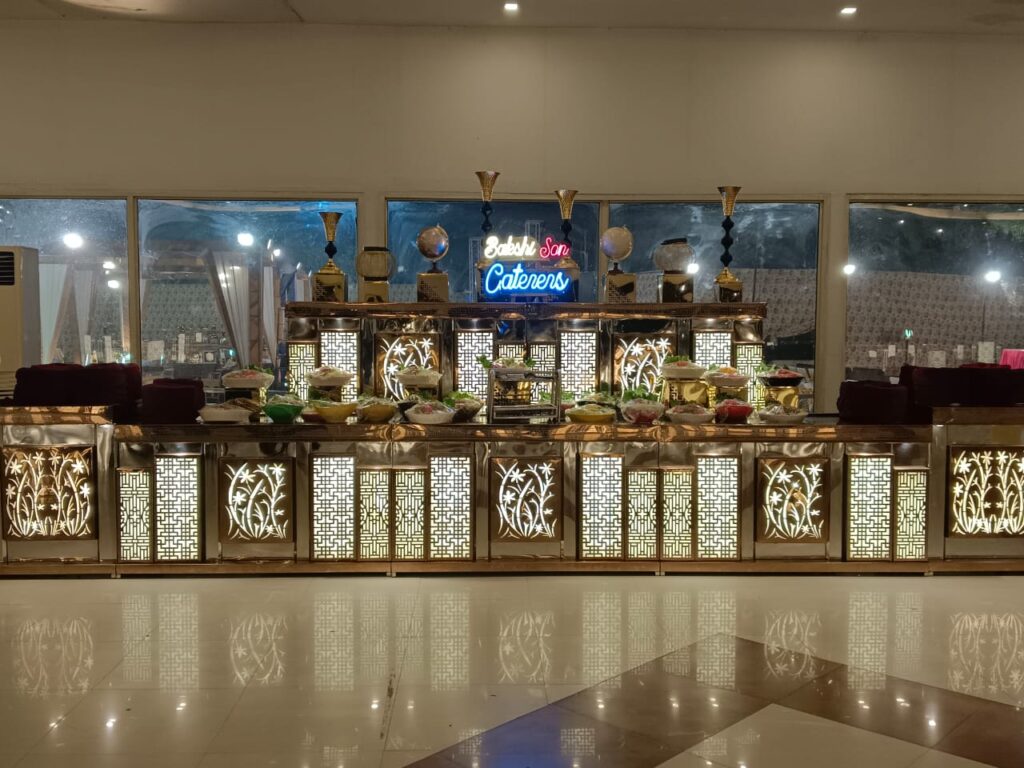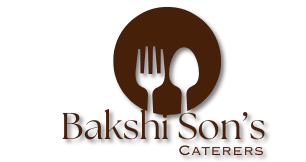Table of Contents
Introduction CATERING
Catering is an essential part of the hospitality industry, providing food and beverage services for a wide range of events, from weddings and corporate gatherings to social celebrations and private parties. Over the years, catering has evolved from simple meal preparation to a highly specialized industry that offers diverse cuisines, impeccable service, and an overall immersive experience. This blog explores the history, significance, modern trends, challenges, and tips for succeeding in the catering business.
The History of Catering
The concept of catering dates back to ancient civilizations. The Romans and Greeks were known for hosting lavish banquets, with servants preparing and serving extravagant meals. In medieval times, royal families and aristocrats hired skilled chefs to prepare feasts for grand occasions.
Catering as a business gained momentum in the 19th and early 20th centuries, with restaurants and hotels offering specialized services for large gatherings. Today, catering has expanded beyond traditional dining to include mobile catering, corporate catering, event-specific catering, and personalized services tailored to clients’ unique needs.
Importance of Catering in Events

1. Enhances the Guest Experience
Food is often the highlight of any event. A well-planned menu and exceptional service leave a lasting impression on guests, making the occasion memorable.
2. Provides Convenience
Professional caterers handle everything from meal preparation to service and cleanup, allowing hosts to focus on other aspects of the event.
3. Offers Diverse Menu Options
Caterers provide a wide variety of cuisines, including vegetarian, vegan, gluten-free, and culturally specific meals, catering to different dietary preferences and restrictions.
4. Ensures Professionalism
With trained chefs, servers, and event planners, professional catering services offer a seamless and hassle-free dining experience.
5. Saves Time and Reduces Stress
Planning, cooking, and serving meals for a large gathering can be overwhelming. Caterers alleviate this burden by handling every detail, from sourcing ingredients to presenting the food beautifully.
Types of Catering
Catering services can be broadly classified into the following categories:
1. Wedding Catering
Weddings require elaborate catering services, from multi-course meals and buffets to elegant table settings and impeccable service. Themed menus and live food stations have become popular trends in wedding catering.
2. Corporate Catering
Corporate events, including conferences, meetings, and business lunches, demand professional catering services with an emphasis on efficiency, quality, and presentation.
3. Social Event Catering
This includes birthday parties, anniversaries, reunions, and private gatherings. The menu and service are customized according to the event’s theme and guest preferences.
4. Buffet Catering
Buffet-style catering is popular for large events where guests serve themselves from a variety of dishes. This style provides flexibility and reduces serving costs.
5. Food Truck and Mobile Catering
Food trucks and mobile catering services have gained popularity for outdoor events, festivals, and casual gatherings. They provide freshly prepared meals on-site, offering a unique and interactive dining experience.
6. Industrial and Institutional Catering
This category includes catering for hospitals, schools, colleges, and workplaces, ensuring nutritious and well-balanced meals for large groups regularly.
Modern Trends in Catering
1. Sustainable and Eco-Friendly Catering
Catering businesses are increasingly adopting sustainable practices, including using organic ingredients, biodegradable packaging, and reducing food waste.
2. Personalized and Themed Menus
Clients prefer customized menus that reflect their cultural heritage, dietary needs, or specific event themes, making the experience more personalized.
3. Fusion Cuisine
Blending different culinary styles and ingredients has become a trend in catering, offering unique and innovative flavors that appeal to diverse tastes.
4. Live Cooking Stations
Interactive food stations, such as live grills, pasta stations, and sushi bars, add an element of entertainment and engagement to catering services.
5. Technology Integration
From digital menu selection to online booking and virtual consultations, technology has streamlined catering operations, enhancing customer experience and efficiency.
6. Health-Conscious Catering
With the rise of health awareness, clients demand nutritious, low-calorie, and organic food options. Caterers are incorporating superfoods, gluten-free dishes, and plant-based meals into their menus.
Challenges in the Catering Industry
1. High Competition
The catering industry is highly competitive, requiring businesses to differentiate themselves through quality, service, and innovation.
2. Cost Management
Balancing food costs, labor expenses, and service quality is a major challenge for caterers, requiring efficient budgeting and pricing strategies.
3. Logistical Complexities
Managing large-scale events, ensuring timely food preparation, and coordinating staff can be challenging, demanding excellent organizational skills.
4. Customer Expectations
Meeting diverse client demands and ensuring consistent quality can be demanding, especially for large-scale events.
5. Food Safety and Hygiene
Maintaining hygiene standards, complying with food regulations, and ensuring food safety are critical in the catering industry.
Tips for Running a Successful Catering Business
1. Develop a Unique Selling Proposition (USP)
Identify what sets your catering business apart, whether it’s specialized cuisine, personalized service, or unique presentation styles.
2. Invest in Quality Ingredients
High-quality ingredients enhance the taste and presentation of dishes, ensuring customer satisfaction and repeat business.
3. Focus on Customer Service
Excellent customer service builds strong client relationships and leads to positive word-of-mouth referrals.
4. Adapt to Market Trends
Stay updated on industry trends and continuously innovate to meet changing customer preferences.
5. Build a Strong Online Presence
A professional website, social media marketing, and positive online reviews enhance brand visibility and attract potential clients.
6. Offer Flexible Catering Packages
Providing customizable packages catering to different budgets and preferences makes your services more accessible to a wider audience.
7. Maintain Hygiene and Food Safety Standards
Ensuring cleanliness, proper food handling, and compliance with health regulations is crucial for customer trust and business credibility.
8. Train and Retain Skilled Staff
A well-trained team enhances service quality and contributes to the overall success of catering operations.
9. Network and Build Partnerships
Collaborating with event planners, venues, and suppliers helps in business expansion and securing more catering opportunities.
10. Continuously Seek Feedback
Customer feedback helps in identifying areas of improvement and ensures continuous service enhancement.
Conclusion
Catering is a dynamic and rewarding industry that requires a blend of culinary expertise, creativity, and business acumen. By staying updated with market trends, offering exceptional service, and prioritizing customer satisfaction, catering businesses can thrive in an ever-evolving landscape. Whether for weddings, corporate events, or social gatherings, the right catering service has the power to transform an event into an unforgettable experience. Investing in quality, innovation, and customer relationships is the key to long-term success in the catering industry.
